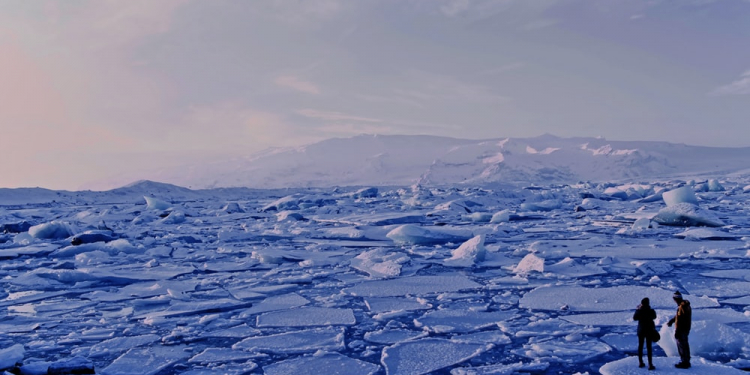Wintry conditions will continue until the weekend, before milder and wetter weather sweeps in to create a temporary reprieve.
A number of weather warnings for snow or ice are in place across the UK for wintry hazards as the cold weather continues this week.
The UK will remain cold through this week with the risk of sleet and snow at times continuing, across northern and eastern locations, but with a chance of some snow across parts of the South West later today.
Paul Gundersen is a Met Office Chief Forecaster. He said: “Over the last week, the UK has been held in a northerly airflow bringing cold, sometimes Arctic air, to the UK. We will still have this northerly influence to our weather patterns until the weekend, but then the cold conditions will lose exclusive dominance over the UK’s weather patterns and we will move into a regime where relatively mild and relatively cold conditions will vie for supremacy.
“We can expect changeable conditions with colder and milder air not too far away from our shores, but it does seem that the Atlantic ‘has woken up’ compared with recent days and will be a stronger influence, countering any further bouts of extreme cold conditions, although spells of further wintry weather remain possible through the rest of December.”
Until this weekend’s transition we will continue to see wintry hazards especially in northern and eastern coastal areas. Overnight frosts will be severe in places and we will continue to see some freezing fog patches. Overnight temperatures have the potential to drop below -10 C in rural parts of Scotland.
The cold air from the Arctic is also bringing brighter conditions for many, with some dry and sunny weather, particularly away from coasts.
A Level 3 Cold Weather Alert -issued by the UK Health Security Agency (UKHSA) – covering all of England is currently in place until Friday 16th December.
Although these temperatures aren’t exceptional for winter in the UK, it is the most significant and widespread spell of cold conditions since February 2021.
Steven Keates is a Met Office Deputy Chief Forecaster. He added: “The boundary between the two air masses will create a window for snowfall over the weekend. This is likely to be transient in nature as the mild wet air from the west will ‘bump’ into the colder air, before displacing it further east. This potential spell of snow will lead to some temporary disruption before the snow quickly turns to rain.
“While the freezing conditions remain, drivers especially are reminded that freezing fog, snow and other wintry hazards will continue to create difficult conditions in places this week.”
More severe weather warnings for wintry hazards could well be needed as we head through the weekend and next week. Keep up to date on the latest weather warnings on our website.
There is lots of advice on the Met Office website on how to prepare for cold weather. Dr Agostinho Sousa, Consultant in Public Health Medicine at UKHSA, said: “Cold weather can have serious consequences for health, and older people and those with heart or lung conditions can be particularly at risk.
“If you have a pre-existing medical condition, you should heat your home to a temperature that is comfortable for you. In rooms you mostly use such as the living room or bedroom, try to heat them to at least 18°C if you can. Keep your bedroom windows closed at night. Wearing several layers of clothing will keep you warmer than one thicker layer.”
Dale Hipkiss, National Network Manager at National Highways, said: “During winter weather, keeping a kit of essential items like a torch and warm clothes in your vehicle can be vital in case you and your passengers become stranded. Freezing conditions bring so many hazards such as snow and ice and take every possible step to understand your journey in advance and allow lots of extra time when travelling to prepare for the unexpected.
“It is therefore always important to plan ahead for your journey, listen to the weather forecasts, and if weather conditions become challenging, adjust your driving behaviour and take extra care.
“We have a section of our website dedicated to travelling during the autumn and winter period, as part of our guide to travelling in severe weather. It’s also a good idea for people to check their vehicles, such as tyres, coolant and oil levels, before heading out to reduce the risk of breakdowns.”
National Highways has lots of advice on its website around travelling in severe weather conditions, including high winds and gales, fog, rain and snow and ice. Visit our travelling in severe weather web page.





























Discussion about this post